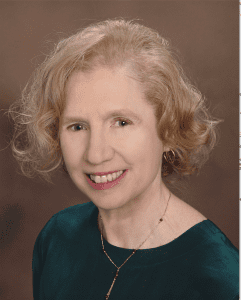by Virginia Colin
The Problem Faced by New Family Mediators
Starting a career in family mediation is hard for most of us. First, we spend lots of time and money learning the skills we need, in order to be able to help families manage their internal conflicts. Second, we have to learn how to make the availability of our services known to the communities around us. In other words, to be successful we must learn something about marketing. (That’s a topic for future articles.) When we do our work well, most of our clients will not need us again for a long time. Consequently, to have successful practices, we have to continue marketing our services.
Know Your Value
Professional family mediators provide services that families need. We help families solve problems, resolve conflicts, and avoid the emotional and financial damage that come from litigating family matters. The range of rates between what psychotherapists charge and what family law attorneys charge in your area is the range of rates that is appropriate for professional family mediators to charge. New mediators start at the bottom of that range; as their skills and experience increase, their hourly rates can also increase.
Join or Form a Local Case Consultation Group
Sooner or later, you will have clients who present challenges you have never had to handle before. At such a time, it is wonderful to have connections with other mediators who can help you explore ideas about how to help your clients. Even if most of your clients just present familiar problems, discussing cases with other mediators — both your cases and theirs — is a way to keep expanding your skills.
Find a Mentor
Sometimes, you need help with a case from someone who has more expertise than the members of your local case-consultation group. Sometimes, you need expert help quickly. For such times, it is good to have an ongoing relationship with a very experienced family mediator. Some mentors in that category are available for phone consultations about difficult cases. You pay their normal hourly rate, perhaps prorated for 15- or 20-minute increments. APFM is working on developing a more formal mentorship program. If you are willing to serve as a mentor, contact Virginia Colin at [email protected]. If you want to have a mentor on-call, but do not know where to find one, contact Virginia, who will help you find one.
One way to connect to a wonderful mentor for a very modest amount is to join APFM’s 2018 case consultation group.
Know That You Are Not Competing Against Other Professional Family Mediators
At this stage in the development of the profession, any time a family mediator does a good job for his or her clients, it helps all of us. At this stage, all of us need to raise the public’s levels of awareness of, and confidence in family mediators. There is no need to compete against each other to get cases.
Instead, compete against those lawyers who take advantage of their clients. Some While some lawyers help their clients reach reasonable settlements reasonably quickly; , others keep their clients in conflict for as long as possible, which is good for the lawyer’s income and bad for the family.
Compete against retired judges who hold high-pressured settlement conferences with the clients isolated from each other in separate rooms throughout the process, but call that “mediation.”
Compete against the idea that, because professional assistance is so expensive, people often wind up trying to handle their divorces on their own, despite all the risks that come with doing so.
However, do not compete against the other professional family mediators in your region. Work with them to help prospective clients learn to look first for a mediator, not an adversarial lawyer, when there is a conflict in the family.
Form a Group Practice
Get at least one partner or junior associate, before you need one. When you have more cases than you can comfortably handle, you will be too busy to: a) create a partnership agreement with another experienced mediator or b) write a contract with a new associate who will work somewhat independently or c) mentor a new mediator.
One way to form a group practice, when you have a well-established practice, is to find a new mediator with good potential and to mentor him or her. Another approach is to form a partnership with another professional family mediator whom you respect. In fact, instead of opening two separate private practices, two new mediators could form a partnership in the very beginnings of their work as mediators.
 If you have two or more mediators in your group, you have a built in case consultation group. You also enjoy some lifestyle benefits. If you don’t want to work on Fridays, or in the evening, another member of the practice can take care of clients who need to meet during these times. When you go on vacation, the other mediators will be able to help new clients who want to get started during your absence.
If you have two or more mediators in your group, you have a built in case consultation group. You also enjoy some lifestyle benefits. If you don’t want to work on Fridays, or in the evening, another member of the practice can take care of clients who need to meet during these times. When you go on vacation, the other mediators will be able to help new clients who want to get started during your absence.
Mediators in group practices also enjoy some huge marketing benefits. What you need to do to attract clients to a solo practice is the same as what you need to do to attract clients to a group practice. In other words, it costs very little more to find clients for five mediators than it costs to find clients for one mediator. Talk about economy of scale! For example, after six years in private practice, I realized that, if I started getting one more new client per week than I was already getting, I would have more clients than I wanted to handle by myself. Consequently, before I got overwhelmed, I formed a group practice. That worked well for me and seems likely to work well for others. The other mediators in my group share the income from their cases with me, because I’m handling everything except direct service to their clients. It is my job to keep our website useful for, and visible to clients, and I do almost all the rest of our marketing. I handle intake, send invoices, keep records, file tax forms, and pay all of our rent, advertising, and other administrative and overhead expenses. All that the other members of the group have to do is mediate. All five of us get to do the work we love, helping families. Instead of having five separate advertising budgets and five separate administrative assistants, we have one budget and one assistant. It’s a good economic model.
Give Back to the Community of Professional Family Mediators
The last stage of a mediator’s career includes passing the torch to the next generation of mediators. We need to mentor new and mid-career mediators, contribute to APFM’s work, and help the public learn when families should look for a professional family mediator.
At every stage of our careers, professional family mediators should be helping each other. That is a big part of how we can best help humankind.
___________
Formerly a research psychologist, Virginia L. Colin, Ph.D. has been providing family mediation services since 1999. She has written two books: Human Attachment (1996) and, with Rebecca Martin, The Guide to Low-Cost Divorce in Virginia (2014). She is the Director of Colin Family Mediation Group LLC.
